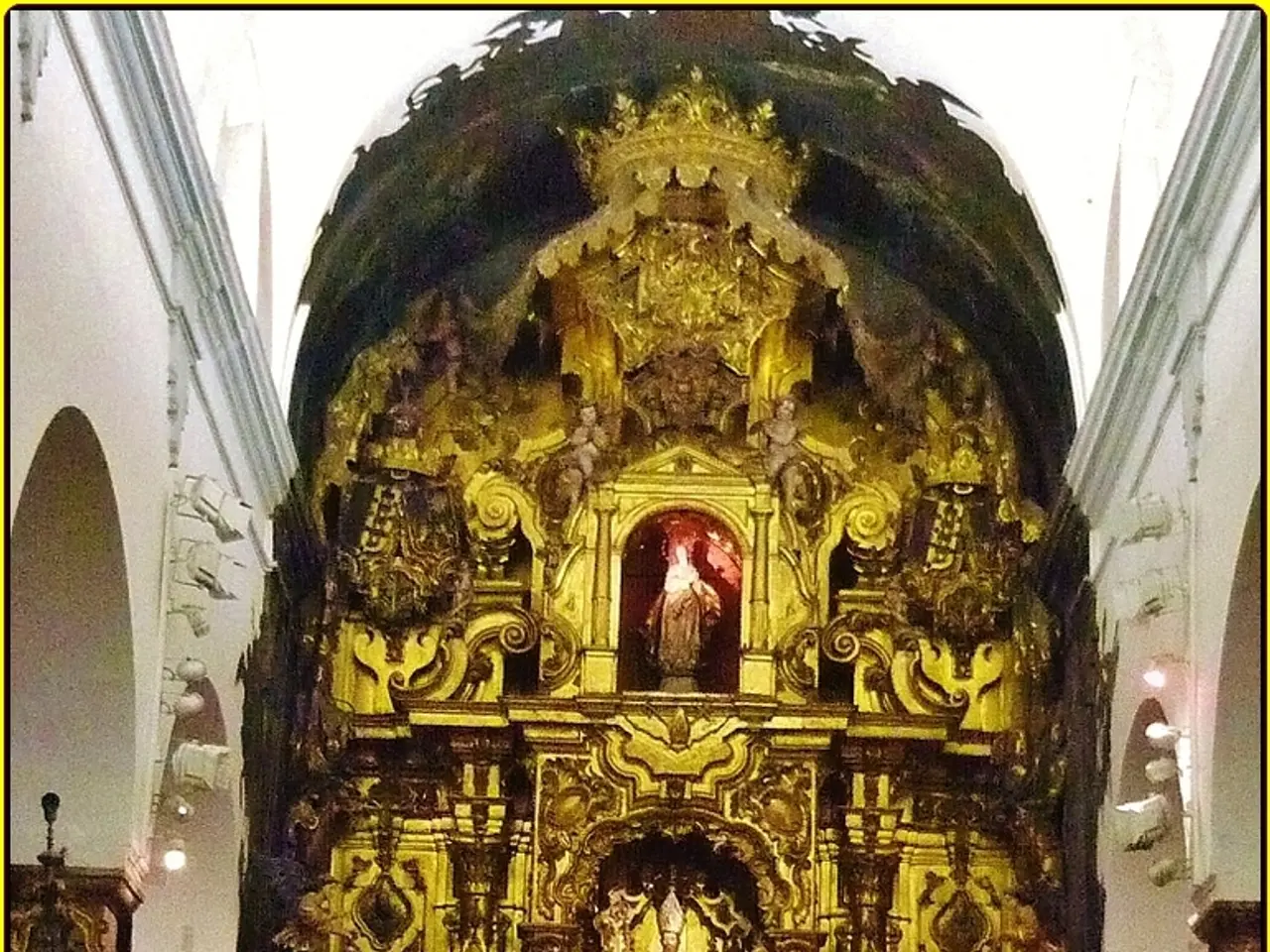Modernizing Vietnamese Tourism Industry with cutting-edge technology to attract international tourists
In a bold move to modernise its tourism industry, Vietnam is integrating virtual reality (VR), augmented reality (AR), and extended reality (XR) technologies to digitise heritage sites and enrich cultural experiences. This transformation turns traditional sightseeing into immersive digital adventures, making Vietnam a pioneer in the region.
Key implementations include the "Finding the Lost Imperial Palace" project by the Hue Monuments Conservation Centre. Utilising Nreal Air AR glasses, visitors can virtually step into the Nguyen Dynasty, witnessing re-enactments of court rituals, guard changes at the Ngo Mon Gate, and performances at the Duyet Thi Royal Theatre, all at their authentic historical locations. This innovative approach goes beyond reconstructing lost architecture; it fosters emotional connections to history, delivering a deeply culturally rich experience.
The central province of Quang Tri is also digitising multiple cultural sites, including museums, the Chut ethnic cultural space, and the UNESCO World Heritage Phong Nha-Ke Bang National Park. Telecom provider MobiFone Quang Binh, in collaboration with the provincial Department of Culture, Sports, and Tourism, uses 360-degree photos, 3D models, VR videos, and digital narration, offering remote explorers an authentic virtual experience of these sites. The aim is not only preservation but also accessibility, particularly for the youth.
Vietnamese tourism is also embracing artificial intelligence (AI) to streamline and personalise tour experiences, making itinerary design more efficient than ever before. These AI-driven solutions integrate with AR/VR platforms to customise visits at an unprecedented scale. However, human tour guides are not being replaced. Instead, they are empowered to become "living storytellers" who add emotional interaction and authentic narratives, enhancing the virtual experience's depth and cultural significance.
The Vietnamese government has enacted master plans and digital transformation projects aiming to foster smart tourism by 2030. The government supports integrating AI and smart platforms, seeing digital transformation as inevitable and essential for sustainable tourism development. Efforts focus on making these technologies accessible to diverse demographics, including older visitors, by designing user-friendly VR experiences.
Experts predict 2025 as a breakthrough year for AR adoption in Vietnam's tourism, comparable to the widespread use of QR codes. The combination of AI, lightweight and easy-to-use devices, and personalised experiences is expected to significantly accelerate the digitalization and modernization of tourism.
However, one challenge in the digital transformation of tourism is making technology accessible to all. The government and private sectors are working to address this issue, ensuring that everyone can benefit from these advancements.
Deputy Minister Ho An Phong views digital transformation as an essential move to sustain the tourism industry. Digital platforms enable businesses to provide customised travel plans directly to consumers via smartphones. This direct connection between providers and consumers is revolutionising the tourism landscape, making it more efficient and personalised than ever before.
In conclusion, Vietnam is leveraging VR, AR, and XR not only to digitally reconstruct and preserve its rich heritage but also to create emotionally engaging, multi-sensory cultural journeys that broaden access and deepen appreciation for its historical treasures. This digital revolution is set to redefine Vietnam's tourism industry, offering visitors unique and immersive experiences that will leave lasting memories.
- The Hue Monuments Conservation Centre is launching a project called "Finding the Lost Imperial Palace," which uses Nreal Air AR glasses to digitally recreate the Nguyen Dynasty for tourists.
- In the central province of Quang Tri, multiple cultural sites are being digitised, including museums, the Chut ethnic cultural space, and the UNESCO World Heritage Phong Nha-Ke Bang National Park, using 360-degree photos, 3D models, VR videos, and digital narration.
- An AI-driven solution is being implemented in Vietnamese tourism to streamline tour experiences and customise visits at an unprecedented scale, with human tour guides being empowered to become "living storytellers."
- The government of Vietnam is supporting digital transformation projects to foster smart tourism by 2030, with an emphasis on making these technologies accessible to diverse demographics, including older visitors.
- Experts predict 2025 as a breakthrough year for AR adoption in Vietnam's tourism, as the combination of AI, lightweight devices, and personalised experiences is expected to significantly accelerate the digitalization of tourism.
- One challenge in the digital transformation of tourism is ensuring that technology is accessible to all, a problem that the government and private sectors are working to address.
- Deputy Minister Ho An Phong views digital transformation as essential to sustaining the tourism industry, with digital platforms enabling businesses to provide customised travel plans directly to consumers via smartphones, revolutionising the tourism landscape.





